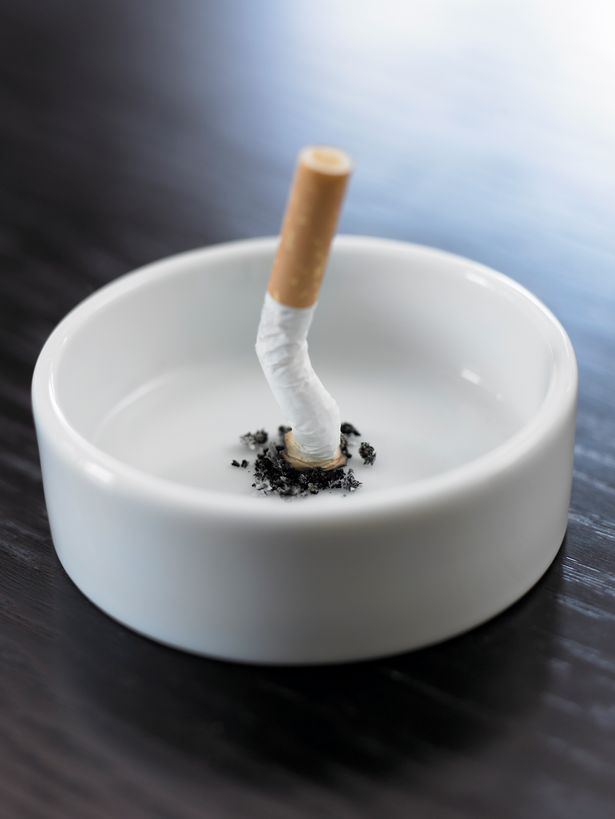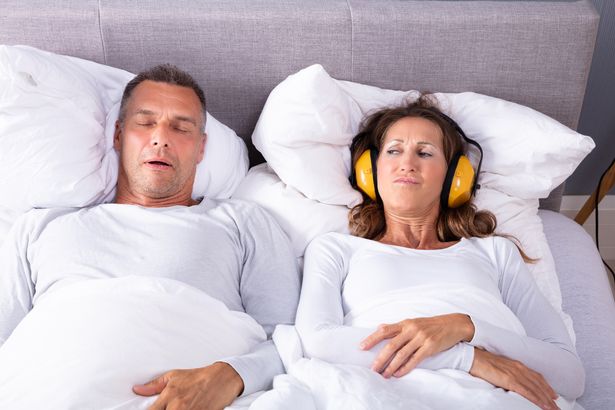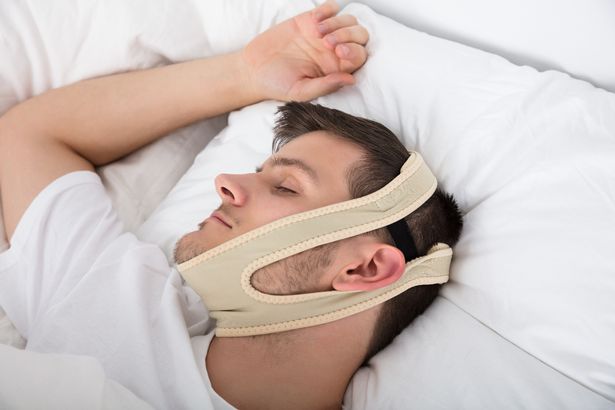Caused by vibrations from your tongue, throat, nose or other tissue inside the mouth as you breathe, snoring happens because these parts of your body relax and narrow when you are asleep, and your breath comes up against a blockage or obstruction.
One quick fix you could try is to get the snorer in your life to sleep on their side rather than on their back at night.
And if you have a sneaking suspicion blokes make more of a racket in bed, you’re absolutely right – 40% of men are snorers, compared to just 24% of women. Age and other factors can make a big difference too…

What are the causes?
Being older: Decreased muscle tone in the mouth and throat can make obstructions to breathing more likely. A significant proportion of snorers – 58% – are between 50 and 59 years of age.
Being overweight: Fatty tissue on the neck can put pressure on your airways.
Smoking: Cigarette smoke irritates the lining of the nasal cavity and throat, causing swelling and catarrh.

Drinking alcohol: Alcohol causes muscles to relax more than normal during sleep, and also causes nasal airway irritation and congestion, which increases the airways’ resistance when breathing.
Your gender: The male voice box sits lower in the throat than women’s, meaning there’s a larger space left open in the airway. When the tongue relaxes during sleep, it will block only part of the airway, leaving plenty of room for air vibration, which results in snoring.

Allergies: Congestion in the nasal passages caused by an allergy to dust or mould, or allergic rhinitis ( hay fever), prevents you breathing properly.
How can snoring affect your health?
Drowsiness: Getting a poor night’s sleep can result in feeling tired or drowsy the next day, which can affect concentration.
Depression: Constant tiredness due to interrupted sleep can affect your mental wellbeing.
Arrhythmia: Long-term snorers, or people who suffer from OSA (Obstructive Sleep Apnoea), are at risk of developing arrhythmia, an irregular heart rhythm. OSA occurs when you stop breathing for several seconds while you’re asleep, which can happen several times an hour.
Heart attack: OSA is also linked to cardio-vascular problems, such as high blood pressure and coronary artery disease, eventually leading to possible heart attacks.
Stroke: One study has found that the intensity of snoring is related to the narrowing of the arteries in the neck (due to fatty deposits called plaque) and, as a result, the risk of having a stroke.
How can you deal with it?
Often, simple lifestyle changes will help – losing weight, not drinking alcohol before bed, giving up smoking, or sleeping on your side rather than your back. See your GP if these changes aren’t helping, or your snoring is having a big impact on you or your partner’s life. They may recommend one of the many products available which can help ease the obstruction to your airways:
If your tongue is blocking your throat, you can use a mandibular advancement device (a device you wear in your mouth to bring your tongue forward).
If you have blocked, or narrow, nasal airways, you can use special devices (nasal dilators) or strips that hold your nose open while you sleep, or sprays to reduce swelling inside your nose.

If your mouth falls open when you’re asleep, you can use a chin strap to hold your mouth closed, or a device you wear in your mouth to make you breathe through your nose while you sleep (vestibular shield).
Clinical studies have shown that treating OSA with continuous positive airway pressure (CPAP), a ventilator you wear at night, reduces heart disease risk.
For more information about snoring and what you can do about it, visit the British Snoring and Sleep Apnoea Association, www.britishsnoring.co.uk
